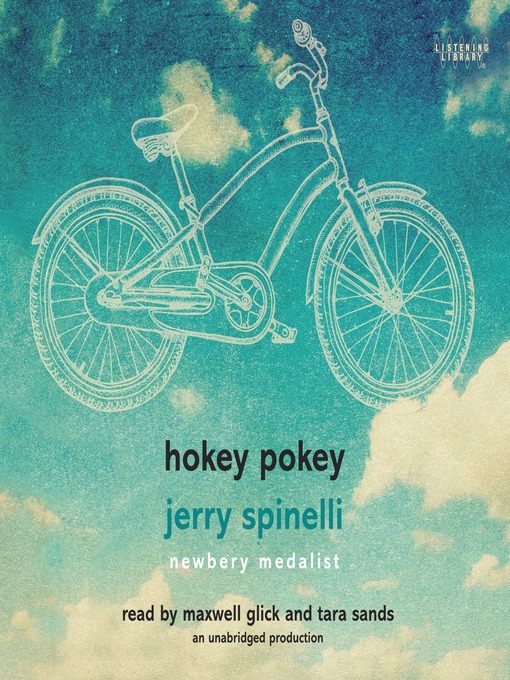 Imagine, if you will, a world made out of childhood. There are no adults. There are no bedtimes. There are no toothbrushes. You spend every perfect, sunny day riding your bicycle (which you have culled from a herd of wild bicycles), watching cartoons, playing ball, and eating hokey pokey (which is apparently a sort of snow cone - I had never heard of this). You play until you're worn out, and then you collapse under the full moon, only to begin again when the sun comes up.
Imagine, if you will, a world made out of childhood. There are no adults. There are no bedtimes. There are no toothbrushes. You spend every perfect, sunny day riding your bicycle (which you have culled from a herd of wild bicycles), watching cartoons, playing ball, and eating hokey pokey (which is apparently a sort of snow cone - I had never heard of this). You play until you're worn out, and then you collapse under the full moon, only to begin again when the sun comes up.Such is the daring premise behind Jerry Spinelli's new novel, and the premise is not the only daring aspect of this strange little book. It has stylistic tics that start to whack you upside the head from page one. I haven't seen prose this idiosyncratic since The Girl Who Circumnavigated Fairyland in a Ship of Her Own Making, by Cat Valente. It's like the mutant child of James Joyce and Willy Wonka.
Now, I don't mind stilted prose. I love Cat Valente, after all. If you're going to be that odd and unnatural, though, you'd better have some substance to back it up, buddy. Your weirdness better serve a greater literary purpose. To use a visual metaphor, not everybody who throws paint at a canvas can be Jackson Pollack. With Hokey Pokey, I was pretty skeptical for the first twenty pages or so, but gradually it began to win me over. It's weird, yes, but it has internal consistency. It works.
It does more than work, actually. It's gorgeous. Its whimsical style, wistful/nostalgic tone, and allegorical plot combine to form a moving elegy to American childhood. Those elements make it difficult to evaluate according to the some of the Newbery criteria, though. Setting is murky, but that's intentional, and serves the dream-like sense of the thing. Characters are almost stock, but they are supposed to be everychildren. These elements are effective, but they don't function the way they would in most middle grade novels.
Stylistically and thematically, though, Spinelli is at the top of his game.
Over in the comments of the very last Heavy Medal post until the fall, people are hella divided about Hokey Pokey, and I imagine that this will continue to be a love it / hate it title as we start discussing real contenders this fall. We will be discussing it, though - of that I feel certain.
Until then, I leave you with a few nagging questions about the book:
- Why does Jubilee have a brother? Nobody else in Hokey Pokey seems to have a sibling. Even Jack's actual sibling doesn't manifest that way in Hokey Pokey.
- Is the ending effective? I'm not sure if I like it, or if I would have preferred for the book to end when Jack boarded the train. Maybe that wouldn't have been as effective for the target audience, though.
- Speaking of which - is this a book that will be as appealing to children as it is to nostalgic adults?
- What about the kids whose childhoods don't look like so idyllic? Is that a killjoy question? Maybe it's just me, but I can imagine some people whose childhoods would be distilled into very dark imaginary worlds.
Published in January 2013 through Random House
Well, I loved this - read it in basically one sitting - and I think this does have kid appeal, a ton of it. I think the themes may be a bit sophisticated when taken as a whole, but the characters, setting and plot points are totally, 100% child friendly. Didn't think too much about Jubilee having a sibling - didn't really notice that no one else had one, and honestly I'm not sure it matters that much. And I don't know that a book should have points taken away because it offers an "idyllic" look at childhood - are there no kids out there with happy childhoods out there? I'm sure others will have differing opinions on this, though.
ReplyDeleteYou had me at "mutant child of James Joyce and Willy Wonka."
ReplyDelete